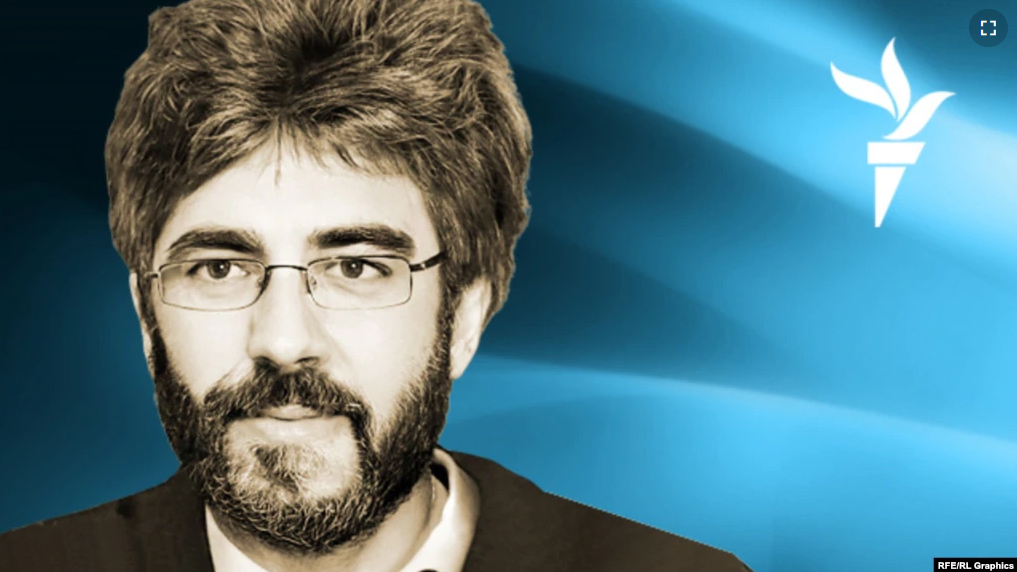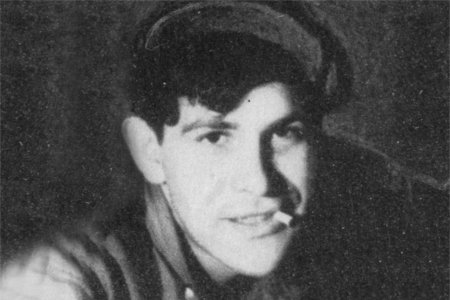
Do not mix vodka and tomato juice,
don't stir up truth and lies.
Vera Pavlova
The social atmosphere is invisible and surrounds us as the air we breathe. And just like air, not only it supports life, but it could also poison it. The atmosphere in which Russian citizens live is entirely different from that in European countries, and both are very different from the atmosphere in Ukraine. One of the main differences is a different attitude towards evil.
Evil is multifaceted, but it has three distinct components. First is an indispensable lie. Evil is unappealing, ugly, and destructive and must always be covered by deceit. Next is the aggression that comes to the aid of the lie if the lie does not work or acts too slowly. And finally, the pride behind lies and aggression. Its manifestations vary from arrogance, vanity, conceit, and self-centeredness to a manic desire for fame, power, and subjugation of others.
Since the time of Ivan the Terrible, and even earlier, judging by various testimonies, evil in Russia has been expressed more or less clearly. They fought with it, obeyed it, learned to coexist with it, or tried not to notice it. The atmosphere of apparent and more condensed evil imperceptibly permeates social and personal life through and through. It manifests in habitual doublethink, immorality, loss of values, and a sense of meaninglessness. Also, in disrespect for others, insufficient self-love, unceremoniously violating other people's boundaries, and subconscious readiness to guard against a sudden attack. Moral compensation for troubles and hardships is the sense of belonging to something great, one's exclusivity, confidence in “our special path,” and a shared, not personal, mission in life. Evil’s hidden manifestations flourish more when it becomes more open: hypocrisy, half-truth, exaggeration, depreciation, blackmail, and shift of responsibility onto other people's shoulders.
Like a radio receiver, a person resonates with the field to which it is tuned.
As the atmosphere of evil grows more substantial, a person becomes more defenseless and experiences more anxiety and uncertainty about the future. Instinctively resisting the evil spilled in the air, people spend their energy not seeing and not hearing the obvious, isolating themselves from the environment by building internal barriers, drowning out the voice of conscience, and not recognizing their responsibility. If resistance is suspended, they surrender to the will of the victorious evil. At the same time, some also attempt to comprehend what is happening, honestly admit their guilt, make sometimes difficult decisions, and start living in a new way, eliminating or at least minimizing evil.
The atmosphere in Western Europe seems quite different: the distinctions between good and evil are unclear. On the contrary, they are blurred and seem not so important. If deceit exists, it is covered with political correctness and affectionate courtesy. Of course, there is a lie, but it is hidden in the foundations of the generally accepted worldviews, which are often not discussed or critically comprehended. Therefore, lies are not unceremonious but discreet and intelligent. They merely hint at someone's backwardness, tendentiousness, or lack of tolerance. There is no open aggressiveness - it is simply indecent and unsafe. Nonetheless, there are many hidden manifestations in secret pressure, protectionism, restrictions, and red tape. There is no evident pride, only complacency and arrogance, a tendency towards conservatism and pushing through only one's interests. With good and evil appearing similar, life is generally calmer, more comfortable for people, and perhaps a little more boring. The trouble is that such an imperceptible, “creeping” evil can spread further and further, as a matter of course. And it is much more challenging to come to your senses and recognize evil than in its open forms.
The atmosphere in Ukraine is fundamentally different from both Russian and European. Here, good and evil exist in struggle, interpenetration, and unity. Therefore, the reality is unpredictable, dynamic, and diverse. Someone became a hero; someone, on the contrary, fell. This explosive mixture of good and evil in a changeable and contradictory atmosphere is fraught with incredible opportunities and considerable dangers. One can both sharply get rid of evil and establish yourself in goodness or come to the strengthening of evil in new and unrecognizable forms. In this atmosphere, lies must contain some truth. Fortunately, there is no place for overt, brazen violence. However, there is room for increasing corruption and injustice, contempt for dissent, and far-fetched restrictions that lead to isolation. On the other hand, there are many examples of humility and spiritual uplift. However, there are often cases of pride in one's exclusivity and neglect of a different point of view by maintaining old illusions or creating new ones. When the time has come for terrible trials, people here show courage, steadfastness, mutual assistance, and unparalleled heroism in the fight against insane and open evil.
The social atmosphere in all these cases is omnipresent. It permeates and directs everything. Anyone breathing this air, without noticing it, is imbued with it and acts accordingly. Therefore, whether they want it or not, consciously or unconsciously, they serve the atmosphere in which they exist. Consequently, they also serve, through their thoughts, feelings, desires, and actions, the evil contained in it
Fortunately, the atmosphere also changes and depends on many factors. Italian philosopher Tonino Griffero has explored this topic in several books, from “Atmospheres. Aesthetics of Emotional Spaces”, published in 2010, to more recent work on the atmospheric nature of education and politics. He draws attention to the fact that social, economic, and other systems require emotional involvement. People always live in an environment emotionally tuned in a certain way. Therefore, it makes sense to consider the atmosphere primarily as an emotional component of the energy field. It has long been no secret that all living systems have such fields. There is a field for a person, a couple, a family, a work collective, a city, a country, etc. As a rule, the larger, the more complex the system is, the more powerful its field. Therefore, we are strongly influenced, for example, by the atmosphere of the area where we are at the moment. A forsaken place, as opposed to a beautiful resort, creates the appropriate mood. Not only social fields have their atmosphere. Different parts of the cultural fields also have their atmospheres and strongly influence the human condition: tv series, films, books, music, art, media, social networks, and intimate conversations. Each of us is more sensitive to one than the other.
Like a radio receiver, a person resonates with the field to which it is tuned. The setting depends on where we direct our attention. Precise tuning can only be achieved with a total concentration of attention when engaged. Usually, we are affected by many background fields, which we touch only marginally. It is like interference and signals from other radio stations with a fuzzy receiver setting.
We must not forget that emotions and feelings are not entirely contained within us but are poured into the energy field — more precisely, in its atmosphere. Therefore, it is difficult to distinguish your feelings from those brought by another person or a faceless atmosphere in which you unwittingly emerged. In addition, the surrounding atmosphere causes a person to have particular emotional reactions that are not clearly perceived and difficult to express in words. But the ability to be aware of them is essential because they unmistakably and directly testify to where you are now.
Here is what Boris Chichibabin wrote about the Soviet atmosphere of the 1970s: “How terrible it is that lies have become the air we breathe until the hour of death, and when we hear the truth, we wave our hands ... and the worst thing is that it’s not scary.” Now Chichibabin's poems are becoming more and more relevant, and not only his. I notice with amazement that the time of Alexander Galich is coming again. He returns "under the roar of other people's hooves," as he foresaw this half a century ago. Who knew then that this roar would appear in such a way?
So how do we deal with all this? What are the possibilities of doing something? Maybe you should pay more attention to which systems you now belong to and which fields influence you. First, listen to your emotional reactions and consciously decide the degree of your belonging. Then, switch your attention to the fields that resonate with you through their values and meanings.
Maybe it's time to take more care of your field. Cleanse it from evil and make it brighter to the best of your understanding. Finally, it may be worth checking every day to see if evil traits have reappeared in your soul. And so, the Little Prince had to weed out the sprouts of baobabs on his planet every morning. However, it is only half the battle — you won’t get far on countering evil alone. Like Bi-2 in the song “Lullaby”: “I went through the denial of evil, but there will be no happiness from someone’s good.”
Arkady Davarov — IT specialist, psychologist
The opinions expressed in the “Blogs” section may not reflect the editors' views.



